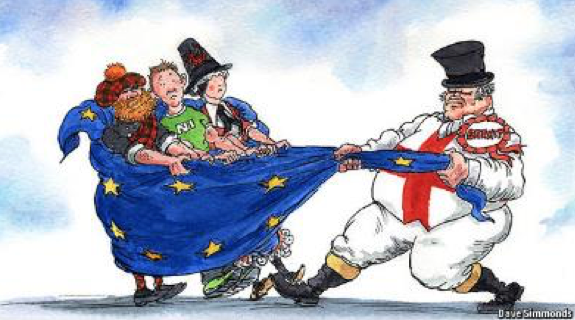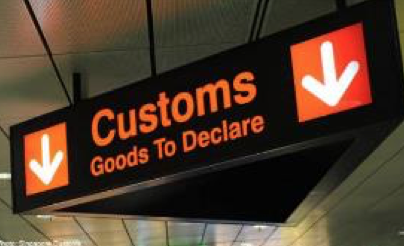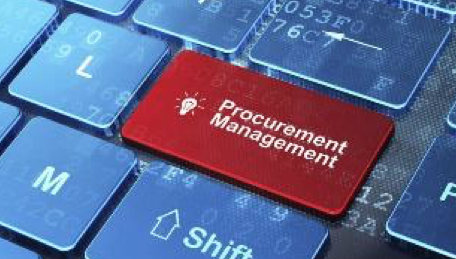We have a BREXIT deal – so what now?!
28 Oct 2019

BFPA CEO, Chris Buxton says that members report a cautious welcome to the latest step in the on-going negotiations around BREXIT.
A little over a week ago, the UK government secured a Brexit deal with the EU. The CBI reported that ‘industry’ in all its guises, has given the deal a ‘cautious welcome.’ The deal unlocks a transition period, guarantees the rights of the 4 million citizens living abroad in the UK and EU, and critically avoids a damaging no deal Brexit, but it is far from perfect. As it stands, businesses have concerns about the direction of the future UK-EU relationship, and how the deal will work for the economy.
The deal is comprised of two parts: The Withdrawal Agreement, the substantial and legally binding part of this deal that covers the UK’s departure from the EU on key issues such as the financial settlement, citizens’ rights and most controversially, Northern Ireland. The second part is the non-legally binding Political Declaration which sets out the ambition for the future relationship between the UK and EU.
This new version of the deal has followed intense negotiations between the UK and EU to attempt to reach a version that would remove the backstop for Northern Ireland – which was the main object of disapproval for MPs with Theresa May’s version.
The Northern Irish Border
 The big change in the Withdrawal Agreement is on Northern Ireland. The backstop, an insurance policy to avoid a hard border on the island of Ireland, has been replaced with a permanent relationship for NI, which ensures regulatory alignment and unrestricted access for Northern Irish businesses exporting to the Republic of Ireland.
The big change in the Withdrawal Agreement is on Northern Ireland. The backstop, an insurance policy to avoid a hard border on the island of Ireland, has been replaced with a permanent relationship for NI, which ensures regulatory alignment and unrestricted access for Northern Irish businesses exporting to the Republic of Ireland.
In this solution, Northern Ireland will remain in step with EU regulations for industrial goods and agri-foods. Northern Ireland will also remain in the UK’s customs territory, but will apply the EU’s customs code at NI ports of entry and EU tariffs on goods entering from the rest of the UK or third countries will apply. Exemptions will be made for personal property, including house moves, or goods that are finished products and fulfil the criteria of a new joint UK/EU committee. In these cases, UK tariffs will apply.
Goods travelling from Northern Ireland to the rest of the UK will not be subject to any duties, nor will goods that originate from third countries which the UK has a trade agreement with. Goods moving from the rest of the UK to Northern Ireland will have a tariff if the product is destined for the EU. If the final point of sale is NI or the product is considered low risk, no tariff will be applied. NI manufacturers and farmers will therefore have better access to the EU than competitors in the rest of the UK. NI will also remain part of the EU VAT area and any reduced VAT rates applied in the Republic of Ireland can be applied in Northern Ireland.
An important feature of the agreement is a new consent process. Under these terms, the Northern Irish Assembly will hold a vote every four years on whether to continue with the new arrangements. If it agrees by a simple majority, the trading rules will apply for a further four years. If the Assembly does not give its consent, the arrangements will be unwound during a two-year cooling off period.
Other matters:-
Much of the issues addressed in this latest deal are very similar to those tabled by the former Prime Minister. The rest of the Withdrawal Agreement on citizens’ rights and the financial settlement has stayed the same as before, and while there are some changes to the political declaration, much has stayed the same. On transport, it maintains the same approach to aviation, road, rail and maritime.
Services
The new deal is still not ambitious enough to provide for 80% of the UK economy where access into the EU market is vital. While it mentions many different service sectors – telecommunications services, courier and postal services, distribution services, environmental services, financial services, transport services – it still does not reference broadcasting.
People
 The mobility framework still aims to cover visa free travel, social security coordination and joint conditions to move for research, study and training – but not work, which is the same as in the March version. Similarly, the Common Travel Area (CTA) will be fully determined by UK and Republic of Ireland, including movement of non-Irish/UK citizens between two countries. Also reiterates that Irish Citizens in NI will continue to enjoy, exercise and access rights as EU.
The mobility framework still aims to cover visa free travel, social security coordination and joint conditions to move for research, study and training – but not work, which is the same as in the March version. Similarly, the Common Travel Area (CTA) will be fully determined by UK and Republic of Ireland, including movement of non-Irish/UK citizens between two countries. Also reiterates that Irish Citizens in NI will continue to enjoy, exercise and access rights as EU.
Goods and customs
 The new deal vaguely commits to an “ambitious customs arrangement” that will make use of new facilitative technologies, though with no reference to what those technologies are, as well as considering mutual recognition of trusted trader programmes and administrative cooperation in customs and VAT and to combat fraud.
The new deal vaguely commits to an “ambitious customs arrangement” that will make use of new facilitative technologies, though with no reference to what those technologies are, as well as considering mutual recognition of trusted trader programmes and administrative cooperation in customs and VAT and to combat fraud.
Energy
 The fact that the statement to ensure security of supply is maintained is welcomed and the encouragement to set up frameworks for technical cooperation between ENTSO-E and G7 is also welcome as this will allow trade to continue over interconnectors. Furthermore, it gives confirmation that the future regime for carbon pricing will be a linked UK Emissions Trading System.
The fact that the statement to ensure security of supply is maintained is welcomed and the encouragement to set up frameworks for technical cooperation between ENTSO-E and G7 is also welcome as this will allow trade to continue over interconnectors. Furthermore, it gives confirmation that the future regime for carbon pricing will be a linked UK Emissions Trading System.
Public procurement
 The new deal still recognises the UK’s intention to accede to the WTO Government Procurement Agreement (GPA) when the UK leaves the EU as well as that the EU and UK should seek to provide for additional access beyond those laid out in the GPA.
The new deal still recognises the UK’s intention to accede to the WTO Government Procurement Agreement (GPA) when the UK leaves the EU as well as that the EU and UK should seek to provide for additional access beyond those laid out in the GPA.
The transition period
The status quo period after the UK leaves the EU but continues to be trade as if in the Single Market and Customs Union while the future relationship is being negotiated, still ends on the same date: 31 December 2020. Even if the UK had left in March 2019, it would have still been ambitious for the UK to negotiation and ratify the second phase of negotiations and with only 14 months remaining, big questions remain about the feasibility of negotiating a new trade agreement deep enough within this time.
 Now that the EU has granted an extension to the end of January 2020, the next question will be one of whether or not an election will be forthcoming. Few disagree that one is inevitable but the exact date (whether the 12th or the 9th of December), is less certain. Even more uncertain is the likely outcome and what might happen next. If a Johnson Government is returned, there is no doubt what their agenda will be but whether or not they have a sufficient majority to make any real decisions will depend upon voting patterns. There is every chance that another hung-parliament could be realised and if this is the case, we could find ourselves in yet another prolonged stalemate with politicians continuing to put their own political dogma ahead of the best interests of the country.
Now that the EU has granted an extension to the end of January 2020, the next question will be one of whether or not an election will be forthcoming. Few disagree that one is inevitable but the exact date (whether the 12th or the 9th of December), is less certain. Even more uncertain is the likely outcome and what might happen next. If a Johnson Government is returned, there is no doubt what their agenda will be but whether or not they have a sufficient majority to make any real decisions will depend upon voting patterns. There is every chance that another hung-parliament could be realised and if this is the case, we could find ourselves in yet another prolonged stalemate with politicians continuing to put their own political dogma ahead of the best interests of the country.
Let’s hope not…

